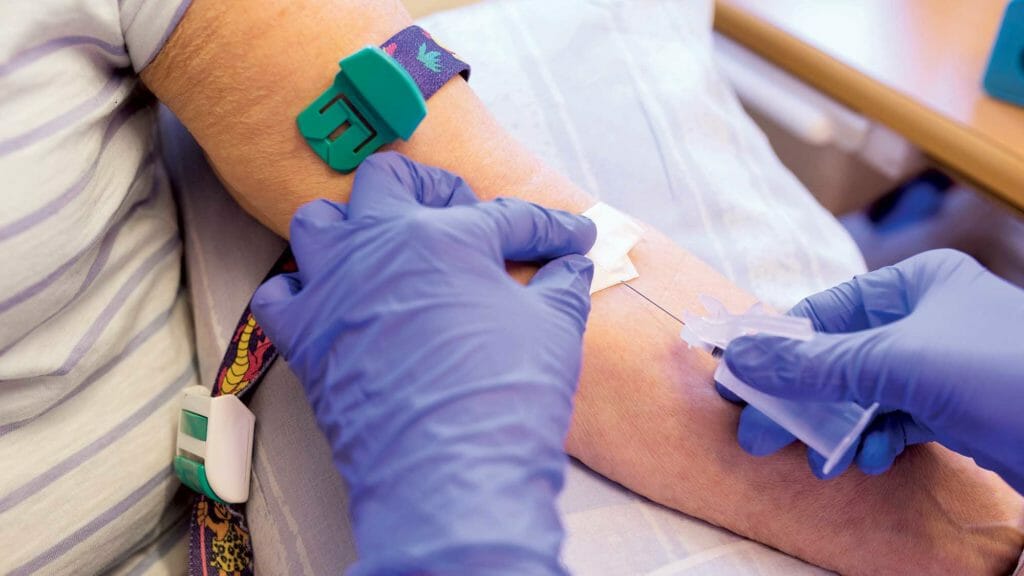
A new blood test could provide an efficient and simple thumbs-up, thumbs-down method for screening for Alzheimer’s disease, researchers say.
It’s the latest finding among several new developments that are aimed at either screening and identifying people who have Alzheimer’s earlier, or treating their symptoms.
“Cost-effective strategies for identifying amyloid-β positivity in patients are urgently needed with recent approvals of anti-Aβ immunotherapies for Alzheimer’s disease,” the study authors wrote. “Implementing such a workflow to detect Alzheimer’s in the future could considerably reduce advanced testing with CSF or PET, minimizing the burden for patients and caregivers.”
The blood test biomarker, labeled p-tau217, was shown to identify early signs of Alzheimer’s with “very high accuracy,” researchers reported, and it could be used for those who show early symptoms such as memory problems or confusion.
The study authors also proposed a two-step workflow to help mitigate concerns that initial testing would create false positives or negatives; the initial blood test would be especially useful in identifying those at high risk for developing Alzheimer’s.
Although some in an “intermediate” risk group still would need additional testing, the researchers predicted that the blood test would screen out two-thirds of candidates for more costly cerebrospinal fluid test or positron emission tomography scanning.
The study was conducted by a team of researchers from universities in Sweden and Canada.
Among recent innovations in Alzheimer’s detection, a $400 test kit from Quest Diagnostics hit the market last month, whereas an at-home finger-prick test also is in development. Blood tests also are being developed to help identify Parkinson’s disease.


